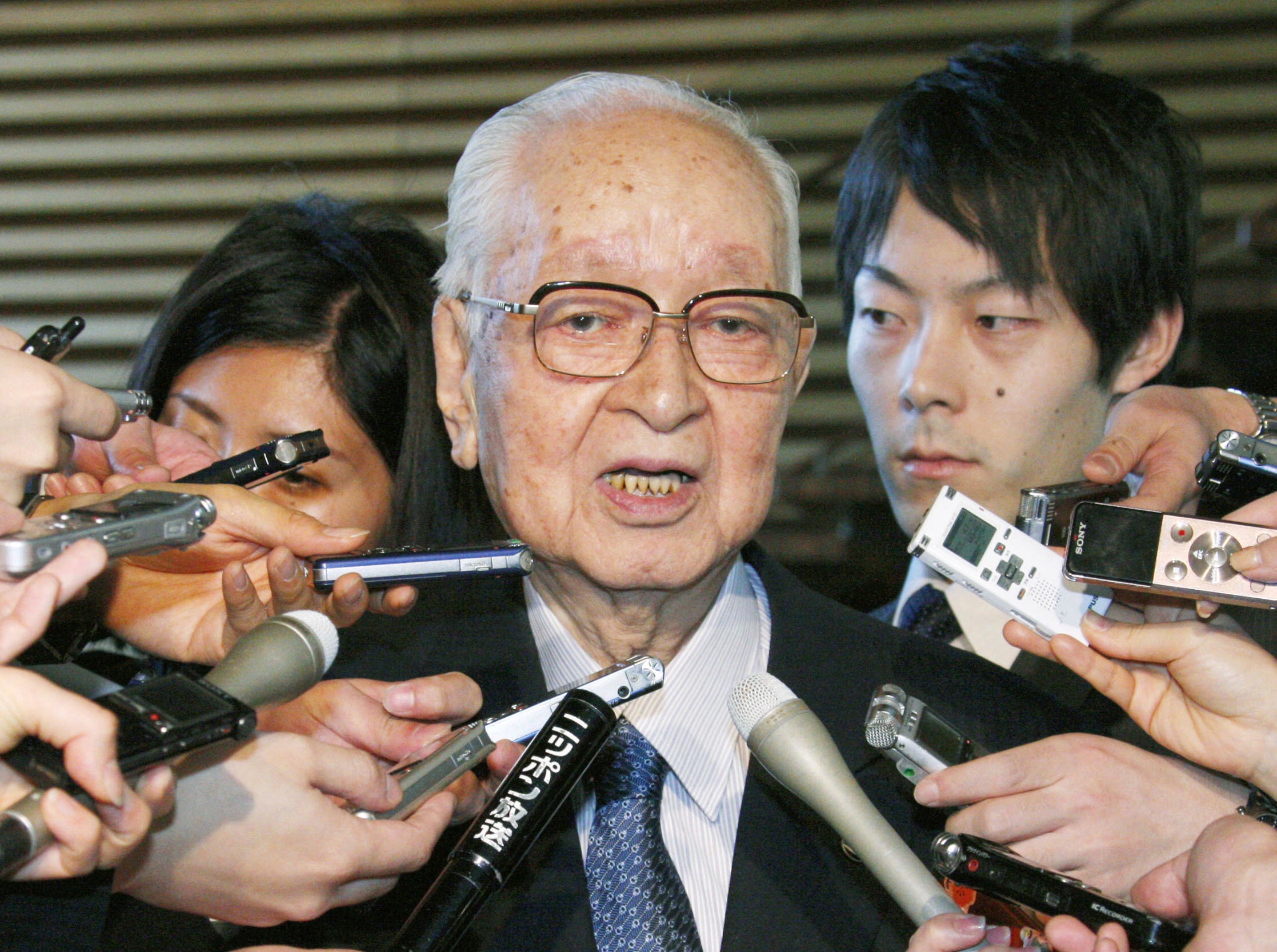Japanese newspaper boss who influenced the nation's postwar politics died at 98
Tsuneo Watanabe, the powerful head of Japan's largest newspaper who helped shape the country's postwar politics, has died, his company said Thursday

Tsuneo Watanabe, the powerful head of Japan's largest newspaper who had close ties with the country's powerful conservative leaders, has died, his company said Thursday. He was 98.
Watanabe, the editor-in-chief of the Yomiuri Shimbun for over 30 years, died of pneumonia at a Tokyo hospital on Thursday, the Yomiuri said.
Watanabe joined the newspaper in 1950 and covered politics throughout his career, attending editorial meetings until last month. He was still checking copy in his hospital room days before his death, the newspaper said.
Watanabe cultivated close ties with conservative leaders who governed the country across decades, like Yasuhiro Nakasone and Shinzo Abe, and to helped form Japan's conservative public opinion. Abe was also known as a loyal reader and once told reporters all his opinions could be found in the Yomiuri when he was asked a question about a proposed constitutional revision.
Watanabe stirred controversy in 1994 when the Yomiuri published a draft revision to the pacifist constitution calling for a clear reference to the Self Defense Force, Japan's de facto military, and other changes at a time when such ideas were taboo.
Born in Tokyo in May, 1926, Watanabe studied philosophy at the University of Tokyo, which was interrupted during the World War II when he was drafted into the Imperial Army, before joining the Yomiuri in 1950.
Watanabe, in a number of media interviews, criticized the wartime military for its abusive treatment of soldiers and wasteful deaths. He was also known for his opposition to the inclusion of war criminals among those worshipped at Tokyo's controversial Yasukuni shrine, and criticizing conservative lawmakers who visited the shrine.
Watanabe served as Washington bureau chief and head of the political news section for the paper before becoming president and editor-in-chief of the Yomiuri Shimbun in 1991. He became chairman of the company in 2004.
Despite his brief affiliation with the communist party as a student, Watanabe converted to staunch anti-communism.
Watanabe also owned the Yomiuri Giants, Japan’s most popular baseball team, and served on an advisory panel for sumo wrestling.
Bookmark popover
Removed from bookmarks